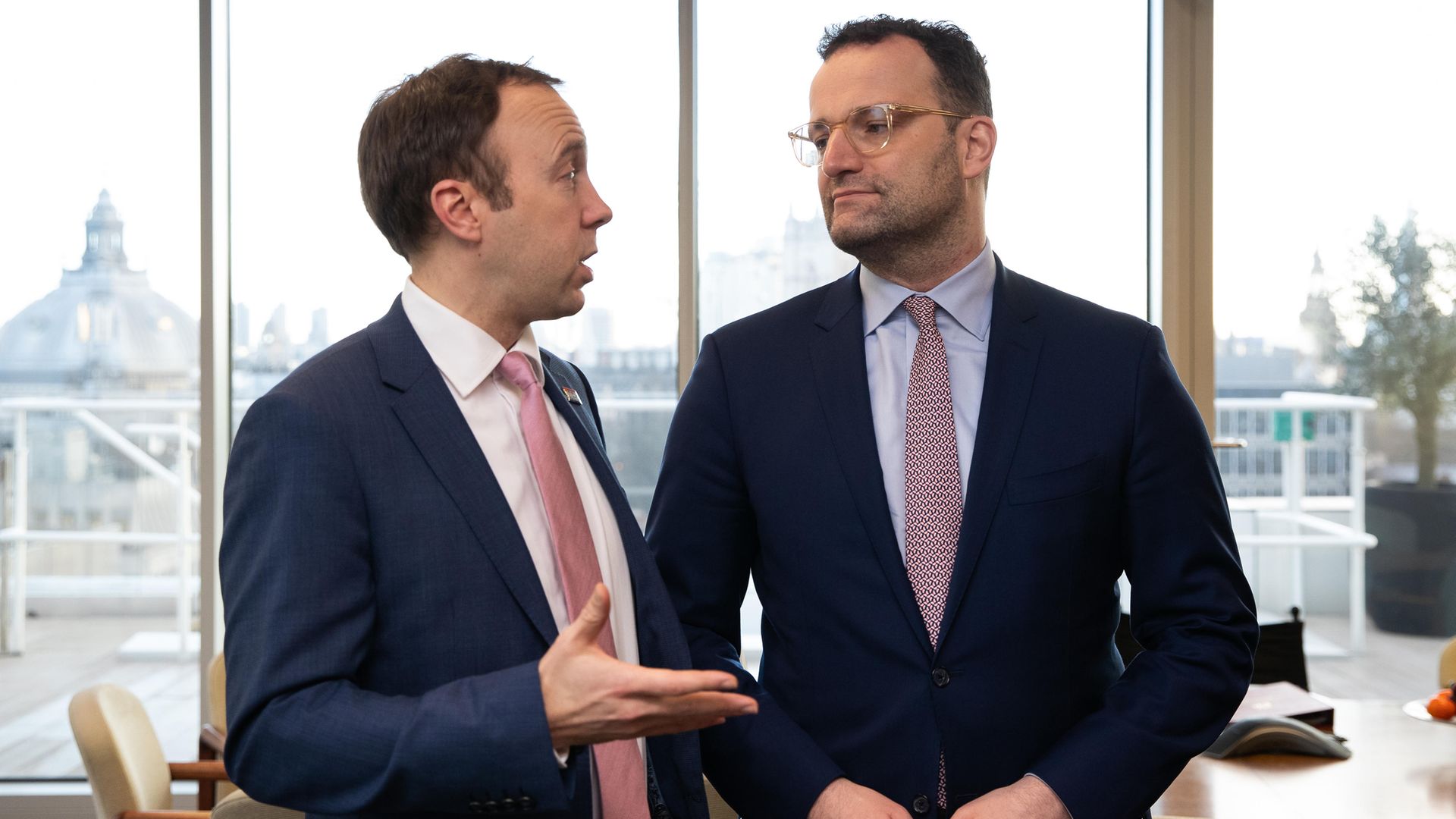
Germany’s health minister has struck down claims UK officials were able to swiftly authorise the Pfizer/BioNTech vaccine because of Brexit.
Jens Spahn said the claims had been ‘misplaced’ as he reminded Westminster politicians that the vaccine had been partly developed by German biotech start-up.
In a briefing on Wednesday, Spahn said although Britain had already approved a vaccine, he was optimistic that the European Medicines Agency would do so soon.
“But a few remarks on Brexit to my British friends,” he said. “BioNTech is a European development, from the EU. The fact that this EU product is so good that Britain approved it so quickly shows that in this crisis European and international cooperation are best.”
Shooting down claims the UK had new powers since leaving the EU to force through an approval, he said: “We have member states, including Germany, who could have issued such an emergency authorisation if we’d wanted to but we decided against this and what we opted for was a common European approach to move forward together.”
Spahn added: “The idea is not that we’re the first, but the idea is to have safe and effective vaccines in the pandemic and that we can create confidence, and nothing is more important than confidence with respect to vaccines.”
The remarks come after health secretary Matt Hancock suggested Britain was able to speedily approve the vaccine thanks to Brexit.
Speaking on talkRADIO, he said: “It is absolutely clear that because we’ve left the EU, I was able to change the law so that the UK alone could make this authorisation decision.”
Mental health minister Nadine Dorries, Commons leader Jacob Rees-Mogg and Tory MP Michael Fabricant all made similar claims.
All three have been reported to Twitter for allegedly spreading misinformation.
Spahn was not the only European official to be irritated with British politicians.
Germany’s ambassador to London fired off a testy response to business minister Alok Sharma after he claimed the “UK led humanity’s charge against the disease”.
“I really don’t think this is a national story,” Andreas Michaelis tweeted. “In spite of the German company BioNTech having made a crucial contribution, this is European and transatlantic.”
Warning: Illegal string offset 'link_id' in /mnt/storage/stage/www/wp-includes/bookmark.php on line 357
Notice: Trying to get property 'link_id' of non-object in /mnt/storage/stage/www/wp-includes/bookmark.php on line 37






